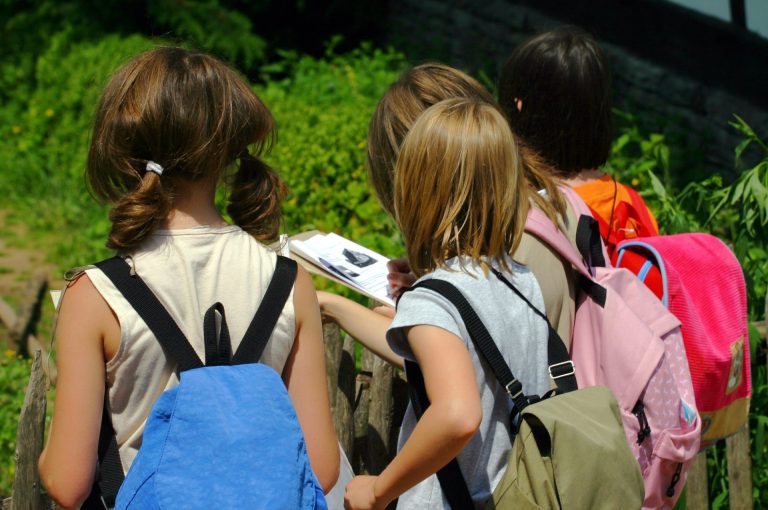Why is Homeschooling Still a Hot Topic?
Back-to-school season comes with sharpened pencils, nervous energy, and, for some families, raised eyebrows. While homeschooling has been steadily growing for years, there’s still an air of “Wait, you do what now?” around it. Why does homeschooling still feel controversial?
Even in 2025, when flexible learning options are more accessible than ever, homeschooling can trigger strong opinions. Some people assume it’s a lifestyle only for the ultra-crunchy. Others question whether kids will grow up lacking social skills or basic math. And let’s be honest, there are still folks who picture homeschooled kids churning butter in Little House aprons and bonnets.
Spoiler: that’s not the reality for most families.
Where the Stigma Comes From
Let’s rewind. Historically, homeschooling was often associated with fringe ideologies, mistrust of public education, or families seeking to avoid curriculum they didn’t agree with. In other words—it got typecast.
Even today, this perception lingers thanks to:
- Media tropes that depict homeschooled kids as either geniuses or socially awkward loners.
- Inconsistent regulation, which leads to wildly different outcomes depending on where you live.
- Parental judgment—from both directions. Some traditional-school families feel judged by homeschoolers, and vice versa.
One parent on Reddit put it best:
“I told my sister we were homeschooling, and she said, ‘But you seem…normal?’ Like, thanks? I think?”
It’s this kind of surprise—sometimes mixed with subtle condescension—that fuels the weird tension around the topic.

Is the Homeschool Controversy Warranted?
Yes… and no.
There are real concerns worth discussing. Some states or provinces have minimal oversight, meaning kids can technically be “homeschooled” without ever cracking a book. That’s scary, and it’s part of what keeps the stigma alive.
But most modern homeschooling families are deeply invested in their children’s education. They use structured curriculums, attend co-ops, hire tutors, and take field trips that would make any school board jealous.
Research shows homeschooled students often perform as well or better academically compared to their traditionally-schooled peers (National Home Education Research Institute, 2021). And socially? They’re playing sports, joining Scouts, acting in theater, and yes—attending prom.
“My son’s homeschool group just went on a trip to the science centre, and one kid gave a better explanation of quantum physics than I ever could. Then they all had a pizza-eating contest. Balanced.”
Why Homeschooling Is Growing—and How COVID Changed the Game
Homeschooling has been on the rise for years, but the pandemic really pushed it forward.
Suddenly, millions of families found themselves navigating a new world of at-home learning, Zoom classrooms, and flexible schedules with kids.
This gave many parents a firsthand look at what homeschooling might look like for their family, without requiring a full commitment.
Many discovered the upsides of customizing learning: pacing lessons around their child’s mood and needs, integrating hands-on projects, and diving deeper into favorite subjects.
Others realized the downsides of traditional school settings—like large class sizes and rigid schedules—more than ever, and found that their kids thrived during this time away from that environment.
According to the U.S. Department of Education, homeschooling enrollment nearly doubled in the first year of the pandemic. Canada and other countries saw similar jumps, confirming this wasn’t a passing trend.
Why the Growth May Stick Around
Many families who tried homeschooling during have continued it, at least part-time. The pandemic broke down stereotypes about homeschooling being “too hard” or “weird.” It also opened doors for more inclusive options tailored to kids’ unique learning styles or health needs.
Plus, advances in technology and online resources make homeschooling easier than ever before. From interactive apps and virtual tutors to thriving online communities and local co-ops, parents are better equipped with support and tools.

What Homeschooling Really Looks Like in 2025
Outsource the tough stuff:
Not every parent is ready to jump in and teach long division or high school chemistry—and that’s totally okay. Many homeschooling families bring in certified tutors or tap into online programs for the more complex subjects.
From virtual math labs to live-streamed science experiments, there’s a growing industry of educational support that helps families fill in the gaps without sacrificing their experience.
Find your people through local co-ops:
One of the biggest game-changers in modern homeschooling is the rise of community co-ops. These aren’t just “playdates,” they’re structured, multi-family learning groups that offer everything from hands-on art workshops to public speaking clubs, robotics classes, and group science labs.
Take the classroom on the road:
One of the most beloved perks of homeschooling is the freedom to go places. Families often plan off-season trips to museums, historical sites, or even national parks—turning geography, history, and science into real-world adventures.
Learning about marine biology? Why not do it at the beach in October when everyone else is in school?
Homeschool is customizable, collaborative, and—contrary to the stereotypes—very social!

Who Thrives with Homeschooling—And Who Might Not
Homeschooling isn’t a magic solution, and it’s not the best fit for every family. But it can be amazing for some, especially if you learn how to set a balance.
Kids who may thrive:
- Those with learning differences or neurodivergence who need sensory breaks or individualized pacing
- Highly creative or advanced learners who get bored or feel misunderstood in traditional classrooms
- Kids recovering from anxiety, bullying, or trauma who benefit from a gentler reintroduction to learning
Families who may struggle:
- Households where both parents work full-time without flexible support
- Parents who don’t have the time and energy to spend time planning
- Parents who feel overwhelmed managing both teaching and parenting without a village
- Kids who crave large-group dynamics
- Kids who require a strong routine and don’t do well with loosey-goosey structures
Homeschooling works when it’s intentional, supported, and responsive—not because someone got overwhelmed by Common Core math one night and rage-quit public school (we’ve all thought about it once)
What Still Needs Work
Homeschooling has come a long way, but there are valid critiques that deserve attention:
- Equity and access: Not every family can afford to homeschool, especially without systemic support
- Regulation gaps: Some areas still lack basic standards, risking the quality and safety of kids’ education
- Representation: Homeschooling spaces need to be inclusive, welcoming families of all races, genders, income levels, and belief systems
The more the homeschool community broadens and diversifies, the more those old stigmas will (hopefully) fade away.
School Isn’t One-Size-Fits-All
At the end of the day, whether your kid is headed to homeroom or the kitchen table, the goal is the same: help them learn, grow, and feel safe doing it.

So yes, homeschooling still feels controversial in some circles—but mostly because we haven’t fully updated our mental image of what it is. It’s not about butter churning or hiding from society. It’s just another path—and for some families, it’s the right one.

